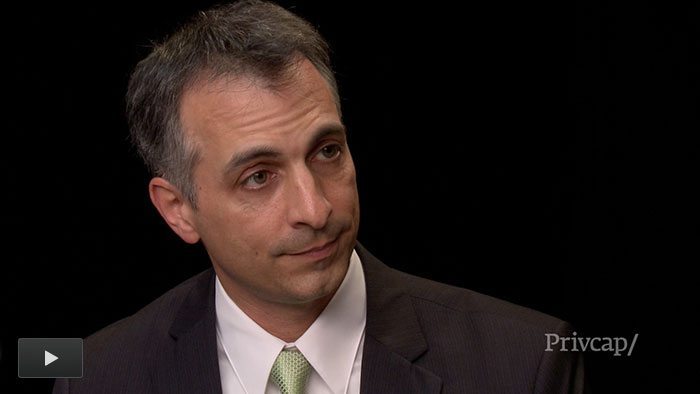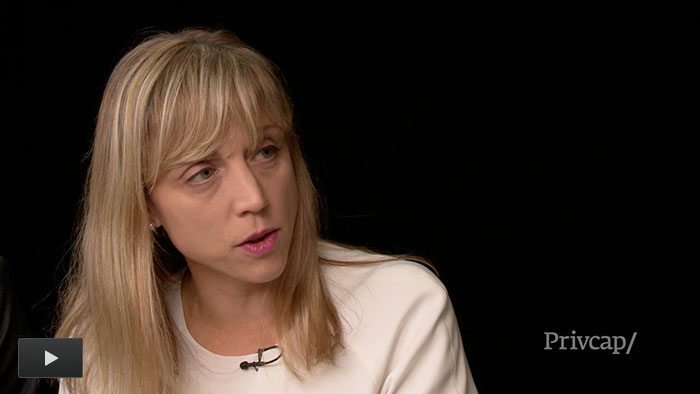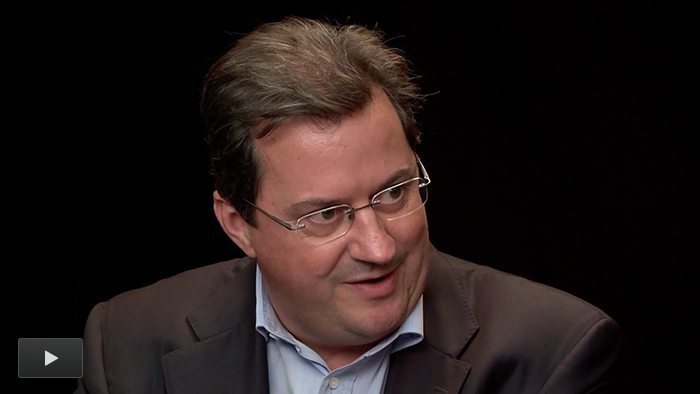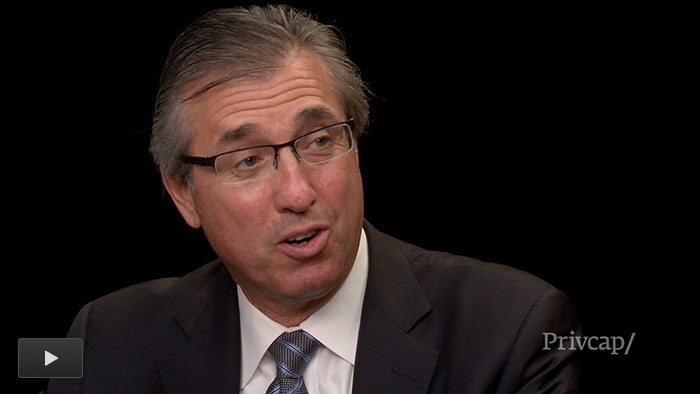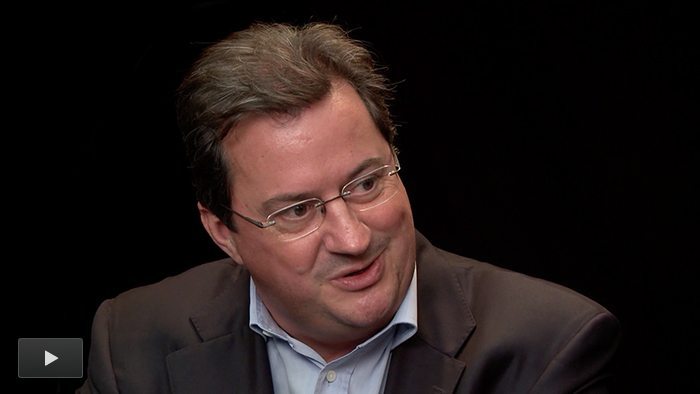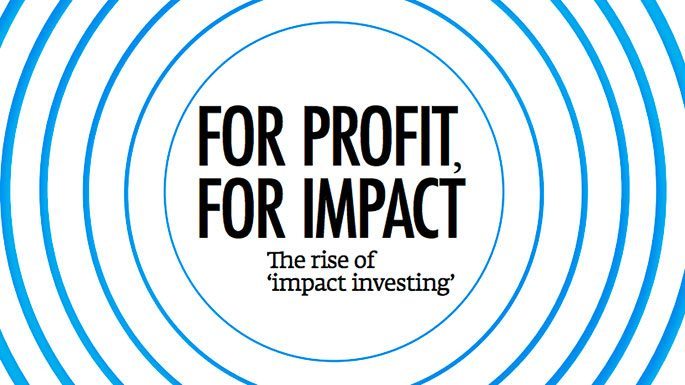Impact vs. Profits? There’s No Trade-off
Jean-Philippe de Schrevel of Bamboo Finance believes the best way to address poverty is via the creation of profitable businesses. His institutional investors are expecting results in both areas.
Jean-Philippe de Schrevel is a friendly, polite man, but if you want to get a rise out of him, suggest that his firm, Bamboo Finance, isn’t focused on delivering financial returns.
While Bamboo, along with a growing number of impact-investment firms, began life with a goal of lifting low-income people to better economic circumstances, its strategy is dependent on backing profitable businesses, he argues.
What follows is an edited transcript of a recent conversation between de Schrevel and Privcap CEO David Snow. In it, de Schrevel argues for the complementary goals of impact and financial returns, discusses the limits of impact reporting, and describes the attitudes of investors toward the impact style of investing.
The term “impact” is being used with greater frequency in the investment world. How does the Bamboo team define it and pursue its strategy around the world?
We came together because we wanted to do something about this world. We want to fight poverty. We want to fight environmental degradation. But we also realize that the magnitude of problems is so important that there’s only one way to go about having meaningful impact, and that’s via private businesses and private capital. So Bamboo Finance has been set up as an investment company—a private equity manager—that invests in companies benefiting low-income communities in emerging markets. So in a way, we are traditional private equity investors with the same job as any other private equity investor.
We just define the investment universe as a group of companies providing low-income communities with essential services. And so we invest in financial services, education, access to healthcare, access to affordable housing, access to clean energy.
You have two billion people in this planet with no access to financial services. You have 1.4 billion people with no access to electricity. Probably a third of the urban populations in the developing world live in slums. So it’s not difficult to imagine that if you can find businesses with the right management teams, the right proposition, the right services at the right price point with the right distribution strategy, you’ll make a killing.
How many people are in your firm?
Twenty-six.
And how many countries are you covering?
Twenty-five.
So a relatively small team for a gigantic geographic area. How do you source opportunities and vet them, especially since many of these opportunities are relatively small?
Well, first of all, it’s a small team, but decentralized. We have offices in Nairobi, Singapore, Bogota. Most of our investment-management team is in those three hubs. So we’re close to the investment opportunities in certainly the three places that we’re going to grow the team. I will not lie to you: At the beginning, sourcing was not obvious. Six years, seven years ago, we had to make ourselves known by going to conferences, being judges in business-plan competitions, etc., etc.
Today, with no false modesty, the deals are coming to us. We are frequent travelers. We are active investors. We sit on the boards. We’re constantly on the phone, constantly on meetings. And we have maintained a ratio of deal to investment managers of three to four, maximum. And that’s what we intend to maintain. And so I understand what you’re saying, but I do believe that we have been able to source and monitor and manage our deals in a very efficient way.
Let’s dig a bit further into the way you screen deals. Are there deals that you believe will be profitable, but because they don’t have the intended impact, you pass on them? Isn’t that difficult?
It’s not difficult and we would clearly do that. The first step in our investment process is to check whether that company fits our impact criteria. And it means, does this company at the heart of its business deliver an essential good or service to low-income communities? Does it change their lives? Does it leave them better, yes or no? If it’s yes, then we proceed to the financial divisions, and we then become fiercely financial, commercial investors. If they don’t hit the bill, we just don’t invest in them. And vice versa, by the way. If we see a very exciting social proposition but it doesn’t meet our threshold of probably around 25 percent IRR, we will not do it. We would likely pass [those opportunities] on to philanthropy investors.
It seems there is a spectrum of definitions for impact capital. On the one hand, impact is pure capitalism that happens to also have social and environmental objectives. Then, on the other hand, impact capital means social objectives that come in a somewhat watered-down version of capitalism. Where does your firm lie on that spectrum?
Well, we don’t see any trade-offs. I know that’s part of the debate, but we don’t see trade-offs between social, environmental, and financial returns. We can have the maximization of all of those criteria in one investment. That’s what we believe in. That’s what we are going to demonstrate over the next few years. People want to make it more difficult than it is.
When people ask me, what’s the value for society of including poor communities in the financial system? I usually tell them, okay, let’s do this exercise: Imagine that you have no bank account. You have no debit card. You have no credit card. You have no savings account. You have no retirement plans. You have no insurance whatsoever. You have no ways of wiring your money anywhere. And by the way, you just have $2 per day in your pocket. How do you feel? Do you think intuitively that the person will be in a better position to grow his business, to care for his family [via inclusion in the finance system]? I think so.
You bring up an interesting point, which is the reporting of both financial and “impact” information. Are there measures of impact success that can’t be quantified? Do you think that it’s futile for some groups to try to say, “We’ve created 27 units of happiness,” and have that live alongside financial information?
I’m not judging the work of anyone. And I think any single approach to what we’re trying to do is good. Philanthropy is good. Soft capital is good. Commercial capital is good. I’m after a system change. I’m after bringing the big pools of capital out there into life-changing companies. In order to attract those pools of capital, I need to show the returns, because otherwise the [investors] will never come.
I track the outreach of those companies, and I certainly believe that commonsense investors will infer that through this outreach, I’m having a tremendous impact. That’s the way I’ve chosen to go. It’s a pragmatic one. It speaks to investors, commercial mainstream investors.
Do you encounter resistance or lack of understanding from people in the charitable world who question whether the building of businesses is the best way to create an impact?
Well, of course we encounter this type of opinion. There are NGOs and not-for-profits that have done absolutely great things. [Some of them] have a very tough time envisioning the commercialization of what they have done. That’s okay.
Let’s look at the financial-inclusion example. There are probably a few instances in sectors where philanthropy and NGOs and not-for-profit action is best.
But for the sectors that I am focusing on with Bamboo—affordable housing, access to clean energy, even access to education, financial inclusion, healthcare—there are business models that go faster, more sustainably and in an exponential capacity to scale up way, way beyond what philanthropy would do for those sectors. I do believe that if you use private capital in those sectors, you will achieve more social good and more social impact than philanthropy.
Talk about how you have been able to raise $250 million as a first-time manager with essentially a first-time team coming together.
Well, I think we have to recognize, when we started Bamboo Finance, it was not the first company that I started. I started another company [earlier], mostly working with microfinance. So I guess when it came to the investors, I already had 10, 12 years’ experience in these sectors so that probably gave some credibility to the proposal. Then, I believe, high-net-worth individuals and family offices appreciated someone speaking directly, transparently. They hopefully could feel the passion of what I was proposing and passion about the team.
[With] the institutional investors, which actually represent 75 percent, 80 percent of our LP base, it was a different sort of approach. We had to prove that we knew the business, we knew the sector, we knew what we were doing, that we were not improvising. We indeed were able to raise $250 million in tough years, 2008–2009. We’ve now deployed that capital, and we’re ready to go for a second series of funds.
I would imagine some established big players want to rebrand themselves as impact investors, or at least launch divisions that are devoted to that style of investing. What is the bare minimum for a group to legitimately say that they are seeking impact?
To be called an impact investor legitimately, I believe that you have to have the intention to target those businesses that will intentionally go after a low-income, working-poor segment with the products and the services they need.
If you don’t have this intention, you can call yourself an impact investor and, by any definition, everybody has impact, right? But I would say [to be an] impact investor, you would have to go and be intentional about defining your investments universe so that you trigger that impact.
This being said, if big houses of private equity were to go one way and call themselves impact investors and create divisions or special funds, I would really welcome that. Because what we need is not some small players pretending to work in a niche market. We want to have the big pools of capital come into those companies that are changing the world.
What we’re after is to demonstrate that you can do it. Once we have demonstrated that, if others want to do it, compete against us, that’s fantastic. That’s how you build an industry. That’s how you build a movement.
Jean-Philippe de Schrevel of Bamboo Finance believes the best way to address poverty is via the creation of profitable businesses. His institutional investors are expecting results in both areas.


